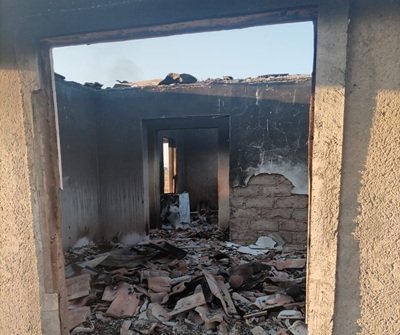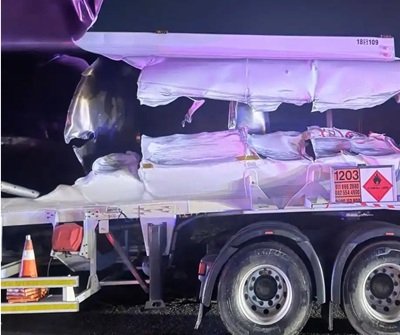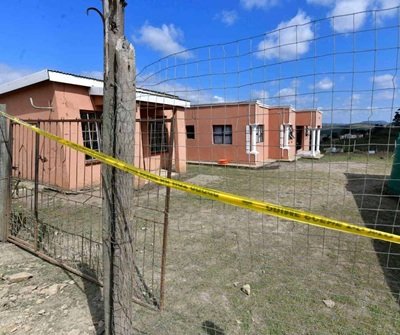Cough Syrup Worth R819K Seized in Booysens, 2 Zimbabweans Arrested
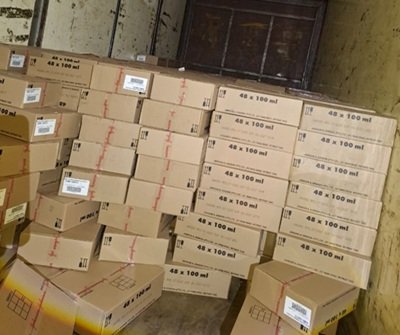
Booysens, Johannesburg — A midnight patrol by Public Order Policing (POP) officers in the Booysens area led to the arrest of two Zimbabwean nationals found transporting 48 boxes of cough mixture, valued at R819,000. The bust has placed the spotlight on what law enforcement and regional observers describe as a growing pattern of cough syrup trafficking between South Africa and Zimbabwe.
The suspects, aged 23 and 24, were intercepted at approximately 00:30 on Tuesday, 29 July 2025, on Rifle Range Road while driving a truck. According to police sources, the two were unable to produce proper documentation for the shipment and failed to name the person or network responsible for instructing them to transport the goods.
The pair now face charges under the Medicine Act 101 of 1965, as well as charges related to the possession of suspected stolen property. They are expected to appear in the Johannesburg Magistrate’s Court soon.
Also Read | Political Assassination: Inkosi and Inmate Arrested for DA Councillor Ndlovu’s Murder
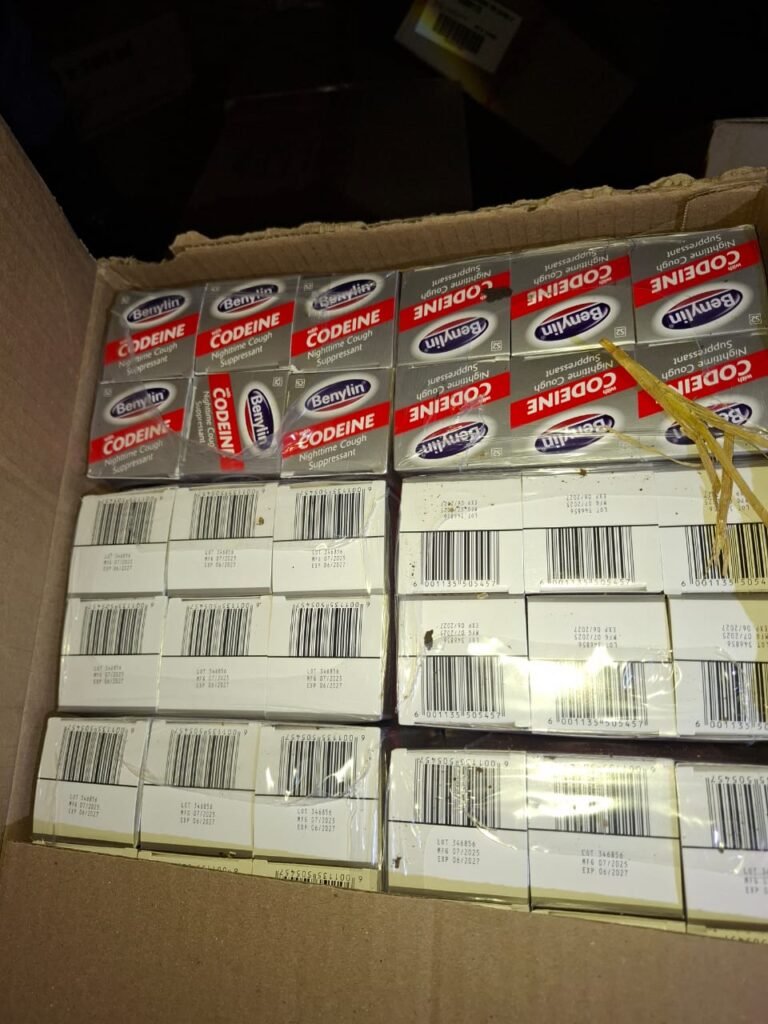
Cough Syrup Trafficking Route from Cape Town to Zimbabwe Busted
The shipment is believed to have originated in Cape Town and was reportedly destined for Zimbabwe. While it might appear to be a pharmaceutical delivery, the type and quantity of medication strongly resemble the pattern of cough syrup trafficking that has grown between South Africa and Zimbabwe in recent years.
In Zimbabwe, this type of medication is not typically used for medical purposes when moved in bulk without documentation. Instead, it is commonly misused as a recreational drug. The syrup, often containing codeine, is consumed in large amounts to induce a state of intoxication. Bottles are frequently sold informally, mixed with beverages, and passed around among users, especially the youth.
The Booysens seizure fits the profile of previous cases where cough medicine was diverted from legitimate supply chains and smuggled into Zimbabwe’s informal markets. The rising demand has turned ordinary cough syrup into a high-value black-market substance.
The medication, often codeine-based, is abused in Zimbabwe and many other countries as a recreational narcotic. When consumed in large quantities, it induces a state of euphoria and sedation. In Zimbabwe, especially in lower-income urban areas, cough syrup is often mixed with soft drinks or alcohol to create a potent street drug. The cocktail is known by various slang terms and is commonly used by teenagers and unemployed youth looking for a cheap high.
“It’s no longer seen as medicine,” said Tendai Nyathi, a Zimbabwean social worker based in Johannesburg. “In many communities, one bottle of cough syrup is a ticket to hours of intoxication. Overdoses are frequent, and addiction is growing.”
Also Read | Zamanguni Gumede to Be Laid to Rest, 1 August, After a Painful Month of Searching
Addiction Crisis in Zimbabwe: How Cough Syrup Has Become a Street Drug
The misuse of cough syrup in Zimbabwe has reached critical levels. What was once a readily available over-the-counter medication is now considered a dangerous substance, often sold illegally in informal markets. In some cases, bottles stolen from South African medical facilities or diverted from wholesalers are smuggled across the border and sold for profit.
Young people often pool money to buy a single bottle and pass it around. Some drink it undiluted, while others mix it with beverages to mask the taste. The euphoric effects are addictive, and long-term use can lead to serious health complications, including liver damage, slowed heart rate, and, in some cases, fatal overdose.
Public health officials in Zimbabwe have repeatedly called for tighter border control and restrictions on codeine-based products, but enforcement remains weak. With growing unemployment and limited drug treatment facilities, the country’s youth remain especially vulnerable.
The arrest in Booysens has reignited public calls for more aggressive border surveillance and deeper investigations into South African suppliers who may be knowingly or unknowingly contributing to cough syrup trafficking syndicates.
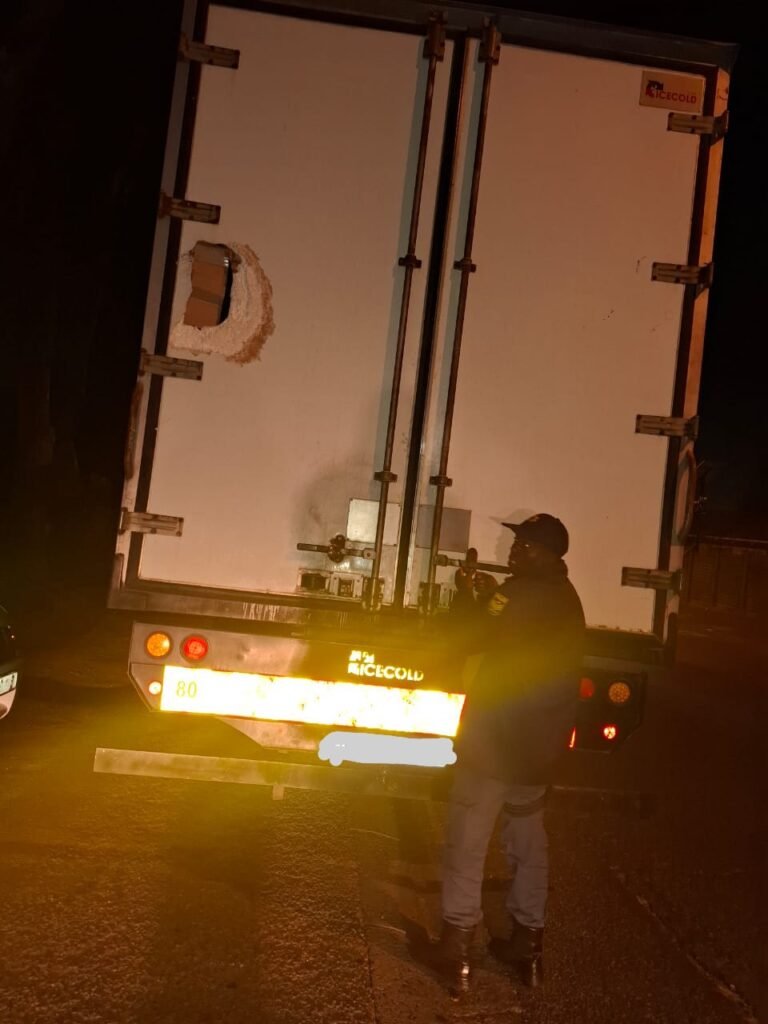
Also Read | Durban Massage Parlour Raids Uncover Drugs, Condoms, and Signs of Human Trafficking
Not Just a Cross-Border Issue
Police have noted that South Africa’s role in the regional drug economy is evolving. With ports, pharmaceutical depots, and major road networks, the country is becoming both a source and a transit zone for trafficked substances.
“This is organized crime, even if it looks small-scale,” said a senior Johannesburg Metro officer. “From one arrest like this, you can usually trace it back to a network involving warehouses, transport operators, and possibly even corrupt logistics companies.”
Authorities have not ruled out further arrests as the investigation continues. For now, both suspects remain in custody and have not yet secured legal representation.
This incident underscores the urgency of tackling cough syrup trafficking at both national and regional levels. What may seem like routine law enforcement in the suburbs of Johannesburg could, in fact, be a major blow to an international smuggling operation feeding addiction and social decay across Southern Africa.
Also Read | Inanda Grade 11 Student Athabile Khanyi Dies After Alleged Rape and Abduction


